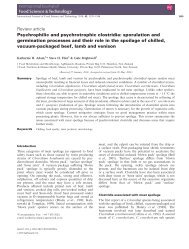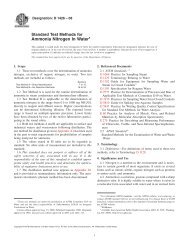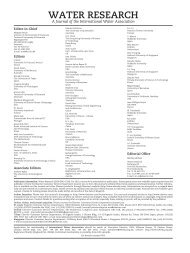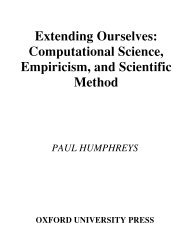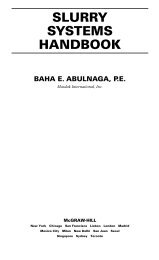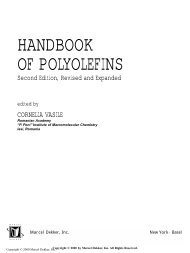Bad Astronomy: Misconceptions and Misuses Revealed, from ...
Bad Astronomy: Misconceptions and Misuses Revealed, from ...
Bad Astronomy: Misconceptions and Misuses Revealed, from ...
You also want an ePaper? Increase the reach of your titles
YUMPU automatically turns print PDFs into web optimized ePapers that Google loves.
WORLDS IN DERISION 181<br />
This premise, that manna <strong>and</strong> insects came <strong>from</strong> Venus to the<br />
Earth, is suspect at best. We now know that the surface of Venus has<br />
an incredibly high temperature, over 900° Celsius (1,600° Fahrenheit),<br />
hot enough to melt lead. It’s difficult to imagine what kind<br />
of bug could survive such withering heat. It’s also hard to see how<br />
manna—a life-sustaining compound—could form on Venus. After<br />
all, the atmosphere of Venus is mostly carbon dioxide <strong>and</strong> sulfuric<br />
acid. If a few billion tons of these substances gets dumped into the<br />
air here on Earth, the effect would hardly be conducive to life. Quite<br />
the opposite.<br />
There are other physical effects of a Venusian near miss. Despite<br />
its differences, Venus does have some similarities to the Earth.<br />
They have almost exactly the same mass <strong>and</strong> diameter. That means<br />
they have about the same gravity. For the air of Venus to flow<br />
onto the Earth, there would need to be about an equal pull <strong>from</strong><br />
both planets on the air, with a little bit more of a pull <strong>from</strong> the<br />
Earth. Even being outrageously generous, their nearly equal gravity<br />
means that Venus would have to be closer than 1,000 kilometers<br />
(600 miles) <strong>from</strong> the surface of the Earth.<br />
Imagine! A planet the size of the Earth passing just 1,000 kilometers<br />
overhead would be just about the most terrifying event I<br />
can imagine. Venus would literally fill the sky, blocking out the<br />
Sun <strong>and</strong> stars. Even at interplanetary velocities it would be vastly<br />
huge in the sky for days or weeks, <strong>and</strong> would be brighter than<br />
hundreds of full Moons.<br />
Yet, no mention of this incredible spectacle is made in ancient<br />
texts.<br />
Worse, the tides <strong>from</strong> Venus on the Earth would be huge, kilometers<br />
high. The earthquakes would have been more than terrible;<br />
they would have destroyed everything, <strong>and</strong> I mean everything. It<br />
would make the sweatiest vision of biblical apocalypse look like a<br />
warm spring day. That close a pass by something like Venus would<br />
have sterilized the surface of the Earth, killing every living thing on<br />
it. Had it happened, Velikovsky wouldn’t have been around to<br />
write his book. To his credit, Velikovsky assumes that there would<br />
have been earthquakes <strong>and</strong> the like, but he underestimates the<br />
effect of such a near passage by a factor of millions.





